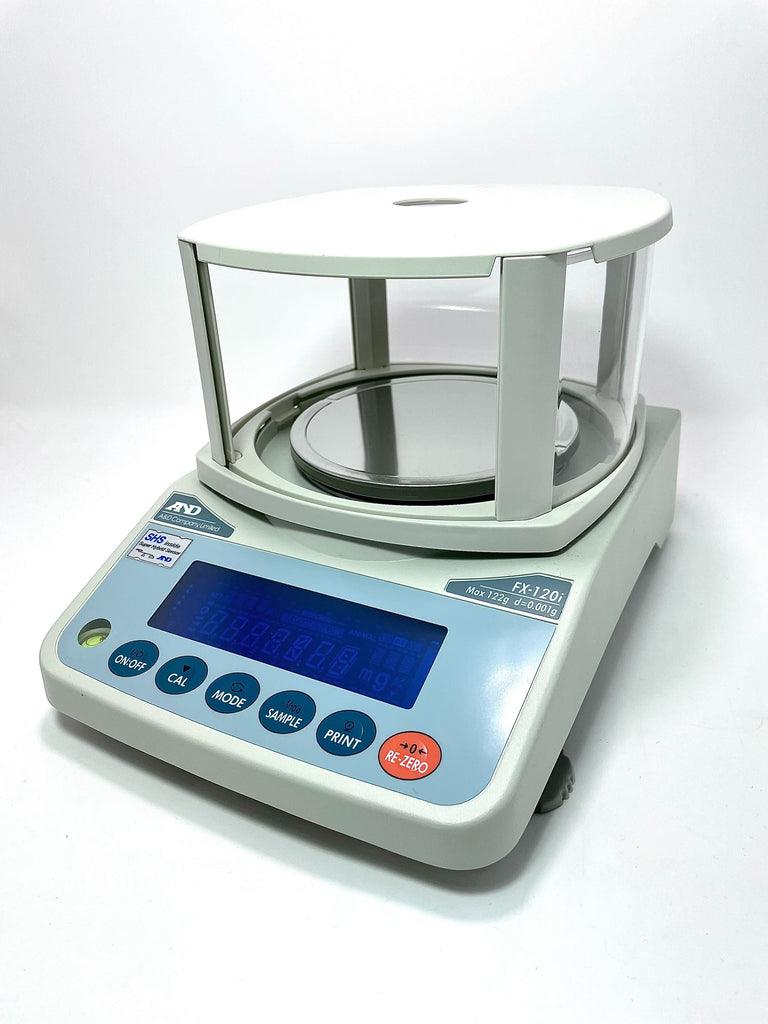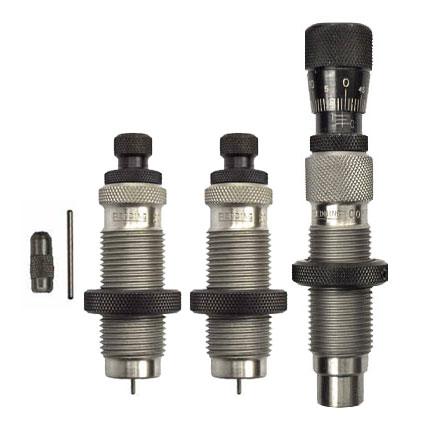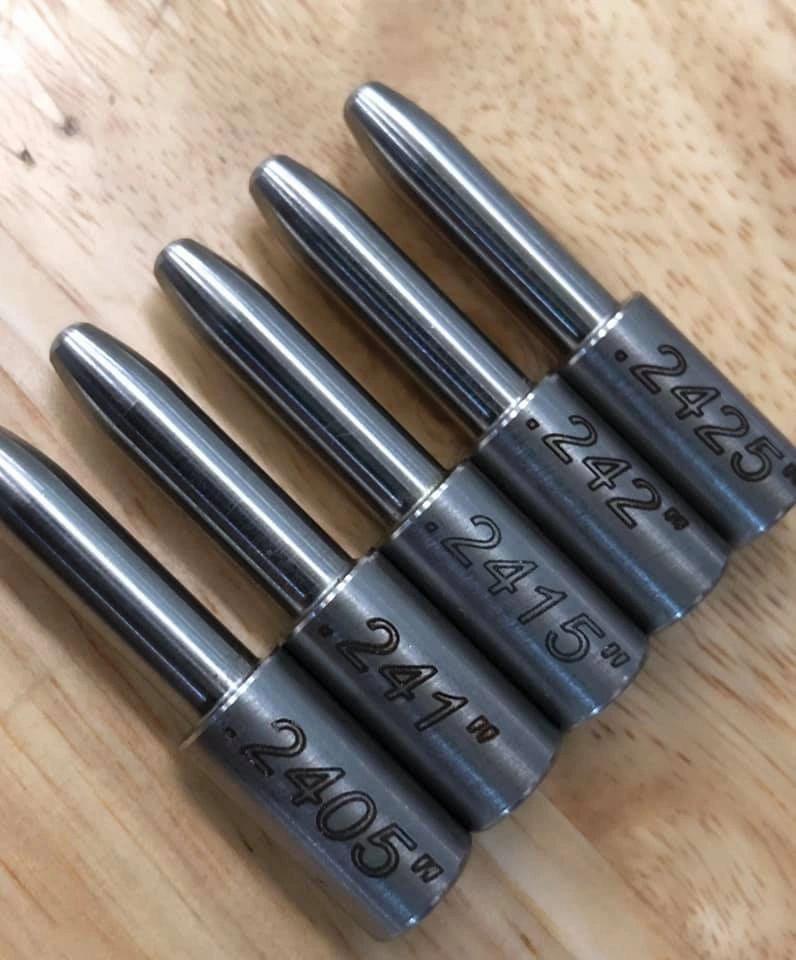Yep a lot does not make sense. I will usually have a 2-3 different common hunting bullet loads for my food hunting rifles. There are usually even today basic bullets that are very accurate and effective. Ie interlock core lokt game king and many others. When you find the one you like load up a bunch and stock up. I have hunting ammo I'm still using I loaded 5-10 years ago. My latest hunting rifle I will have 200 hunting rounds loaded for it. 5-10 rounds a year. I'm good for a few years with that rifle.I really like the federal trophy copper, factory loaded, bullets to hunt with, but they have disappeared. I've used them exclusively in my 30-06 for deer the last couple of years. Now they can't be found. I was a Federal fan boy until they started to discontinue bullet offerings, aren't on the shelves anywhere and are no longer available directly. I'm at a loss how Norma, Remington, and Hornady can be found at local sporting good stores. Yet there are zero Federal offerings. Stumped
You are using an out of date browser. It may not display this or other websites correctly.
You should upgrade or use an alternative browser.
You should upgrade or use an alternative browser.
Looking to get advice on initial setup
- Thread starter SpeedymanWCC
- Start date
 Help Support Long Range Hunting Forum
Help Support Long Range Hunting Forum
Glen Zediker's book is very good. I learned a lot from it. Since he was an NRA service rifle competitor be more concerned with his reloading process than the equipment. His other book "Top Grade Ammo" is also highly recommended and includes a section on equipment purchase for various budgets.I bought the book on Amazon today. Wasn't a prime product, so I'm not sure when it'll arrive. Thanks!
Any good quality single stage press will get you started and will always be needed even if you upgrade to something else later.
Thanks!Glen Zediker's book is very good. I learned a lot from it. Since he was an NRA service rifle competitor be more concerned with his reloading process than the equipment. His other book "Top Grade Ammo" is also highly recommended and includes a section on equipment purchase for various budgets.
Any good quality single stage press will get you started and will always be needed even if you upgrade to something else later.
misterc01
Well-Known Member
IMHO you learn as you go, and make equipment additions or deletions as you go as well. I have an RCBS Rockchucker Supreme, and so far,every time I have looked at adifferent press, the same question comes up: " What will as new one do better that this one doesn't? So I have not bought a new press. My Point: Some folks starting out don't know what they will like until they have some experience. I doubt there is any one on the forum with some experience that does not have things on the shelf they bought, then replaced with something "better."
misterc01
Well-Known Member
Ditto!Glen Zediker's book is very good. I learned a lot from it. Since he was an NRA service rifle competitor be more concerned with his reloading process than the equipment. His other book "Top Grade Ammo" is also highly recommended and includes a section on equipment purchase for various budgets.
Any good quality single stage press will get you started and will always be needed even if you upgrade to something else later.
This is a really good press review video. I think the RCBS Rockchucker came out on top or very close. CO-AX haters love to point this video out.
Well done....saved me from looking for it
A press is a press IMHO...can't go wrong with a Rock Chuker though, mine is 49 years old. That said accuracy comes with a good sizer die, and a better seating die, and a Killer scale! It's all in seating depth repeatability and exacting powder weights my friend. And a Foster trimming center! Just me.
Bullitthead
Active Member
Get a single stage press and the dies for your caliber (if you can find them). Then you spend the next six months trying to find components for your caliber. If you manage to accomplish that or as I refer to it (win the lottery) concentrate on your reloading procedure. This will gain you more practical accuracy in the long run than all the most expensive equipment ever would. This will also let you decide if reloading is for you without having to take out a second mortgage on your house. Then you can dive just as far down the rabbit hole as you wish.
mudflap621
Well-Known Member
I pretty much agree with this. I think a single stage would be a great start for you. I like the Forster co-ax, mec marksman, as well as the chucker. I personally run the MEC.No matter how crazy you get into reloading you will ALWAYS have a use for a single stage press. Almost all of my reloading including precision rounds now get built on the Dillon 550C but the Mec gets used all the time for odd jobs or small test runs.Get a single stage press and the dies for your caliber (if you can find them). Then you spend the next six months trying to find components for your caliber. If you manage to accomplish that or as I refer to it (win the lottery) concentrate on your reloading procedure. This will gain you more practical accuracy in the long run than all the most expensive equipment ever would. This will also let you decide if reloading is for you without having to take out a second mortgage on your house. Then you can dive just as far down the rabbit hole as you wish.
I I would not buy a all in one kit as there are a lot of things you will not use or not like. I would methodically piece together your kit. A good set of calipers is a must as well as a comparator and bump sizing set. A repeatable and accurate scale is also important wether it be a beam, Chargemaster etc.
As far as dies go I would personally start with a full length die and Micrometer seater. I use these to this day even for my precision stuff. You will find a lot of serious shooters have moved away from bushing dies for custom FL dies as most see more concentricity out of them. Neck only sizing is so 20 years ago. Full length size with a small .002" shoulder bump and its money. Neck sizing only had no benefits and will sooner or later require a full length size to fit the chamber.
If you got some time id check out YouTube channels of F Class John and Erik Cortina they are some very knowledgable guys.
As you get the fundamentals down, your needs suggest you should get the 21st Century arbor press w/gauge, for bullet seating, Wilson dies, and bushings, 21st century sizing arbors. You may also see if Whidden will make you a custom Full length bushing die, and he includes a headspace attachment for correct measurement of cases.I pretty much agree with this. I think a single stage would be a great start for you. I like the Forster co-ax, mec marksman, as well as the chucker. I personally run the MEC.No matter how crazy you get into reloading you will ALWAYS have a use for a single stage press. Almost all of my reloading including precision rounds now get built on the Dillon 550C but the Mec gets used all the time for odd jobs or small test runs.
I I would not buy a all in one kit as there are a lot of things you will not use or not like. I would methodically piece together your kit. A good set of calipers is a must as well as a comparator and bump sizing set. A repeatable and accurate scale is also important wether it be a beam, Chargemaster etc.
As far as dies go I would personally start with a full length die and Micrometer seater. I use these to this day even for my precision stuff. You will find a lot of serious shooters have moved away from bushing dies for custom FL dies as most see more concentricity out of them. Neck only sizing is so 20 years ago. Full length size with a small .002" shoulder bump and its money. Neck sizing only had no benefits and will sooner or later require a full length size to fit the chamber.
If you got some time id check out YouTube channels of F Class John and Erik Cortina they are some very knowledgable guys.
If you have a rock steady bench and good eyesight, get a good balance beam scale. The electronic ones can be finicky.
Good luck!
Practice, like anything else you will find that proficiency won't happen overnight.
I find reloading therapeutic and enjoy crafting quality loaded ammo for the rifles I shoot.
I have owned and used rcbs, lyman, lee and dillon presses but the one I use by far the most is an ancient herters press form the 60's.
I also like a balance beam scale, though I have used digital, I simply kept finding myself re checking them on a beam scale, so I sold my digital scale.
There has been a lot of good advice dispensed in the above posts.
I find reloading therapeutic and enjoy crafting quality loaded ammo for the rifles I shoot.
I have owned and used rcbs, lyman, lee and dillon presses but the one I use by far the most is an ancient herters press form the 60's.
I also like a balance beam scale, though I have used digital, I simply kept finding myself re checking them on a beam scale, so I sold my digital scale.
There has been a lot of good advice dispensed in the above posts.
Roperboy87
Well-Known Member
I started out with a used Lyman kit I found on this site then I upgrade to a Franklin Arsenal press man is it night and day difference. I say cry once and start out with what you think will work with your needs. I have had friends that have the rcbs, and hornady presses that have came over to the house and and used my new press and they said it was a super nice press and they was probably going to upgrade. This is and area where you can spend as much as your pocketbook will let ya.
QuietTexan
Well-Known Member
Ok so, based on your criteria and just loading for the one round to start. This is going to be a touch heavy on the "cry once" part but I think it maximizes utility, has a lot of flexibility for growth, minimizes things that will ultimately be completely replaced in order to upgrade, and works to achieve the accuracy goals with the least amount of fuss.I want superb accuracy and quality over quantity. I don't compete. I wouldn't mind later, not sure if the 257 Wby is competition smart. I also like to cry once and prefer quality. I have zero experience reloading.
RCBS Rebel Press
A&D FX-120i balance (balance only, not the full Autotrickler kit)
Redding Elite Bushing Die Set (FL bushing, neck Bushing, mic seater) - get a VLD stem at the same time so you have both
Forster FL die
Universal decapping die
RCBC Universal Hand Primer, or any bench mounted model if you prefer that)
Satern powder funnel
Any Universal loading block
Hornady Headspace Comparator
Hornady Bullet Comparator
Mitutoyo 8" digital caliper
iGauging Outside Mic and Ball Mic, and a stand to hold them
Any manual trickler, I use a Redding because it's one piece and all metal
Lee dipper set for bulk powder dropping
Imperial case wax
Vibratory tumbler and treated corncob or walnut mix
Once you have all that and are ready to load, use the mics to pick:
2-3x correct bushings and a couple of K+M or 21st Century mandrels/die to work your necks with. (I'm not recommending turning mandrels here because I'm suggesting to buy based on your actual brass measurements, and only buy turning and expanding mandrels if you start turning later)
When the time comes to upgrade the only thing that will be completely supplanted is the priming tool, that's kind of an all-or-nothing tool. If you want to add an Arbor press, then the K+M press with an LE Wilson mic die is a good combination - the Rebel press and 3 of the 4 dies will still be what you need for sizing.
If you decide to start annealing, or turning, or volume sorting cases, or anything else you'll have to add those tools, but they won't be replacements for anything on the main list, and the tools like the lab balance, calipers, and mics will be very useful to those processes. If you want to chance cleaning processes later, dry corn cob or walnut is still something I think is important to keep around depending on what kind of case lube you're using, and for general cleaning and polishing.
Links are random vendors I've used before, I don't get paid by any of them. Except I will say CE Products was the best deal by several hundred bucks when I bought my scale.

A&D FX-120i - 122g x 0.001g
A&D FX-120i is the ideal scale for your reloading bench. Superior accuracy and speed, at an affordable price for this laboratory grade scale. Always in stock. $580.00 USD - Free Shipping to The Lower 48
ceproducts.shop

257 Weatherby Magnum Type-S Elite Bushing Die Set
257 Weatherby Magnum Type-S Elite Bushing Die Set by Redding Midsouth now carries the 257 Weatherby Magnum Type-S Elite Bushing Die Set. The 257 Weatherby Magnum Type-S Elite Bushing Die Set is comprised of a Type S Bushing Full Die, A Type S Bushing Neck Die and the unparalleled Redding...
FORSTER 257 WEATHERBY MAG FULL LENGTH SIZER DIE - Graf & Sons
Our Bench Rest® Sizing Dies are manufactured from the finest quality steel and are hand polished both before and after heat treating to guarantee an extra-fine finish. They are all equipped with our exclusive E-Z Out Expander button which solves the age-old problem of keeping case necks...

Caliber Specific Expander Mandrel Kits
Our caliber specific expander mandrels are available in .0005” increments in calibers 22 to 338 and will range from .001” above bullet diameter to at least .003” below bullet diameter depending on caliber. This will allow the reloader to find proper neck tension to fine-tune their loads. The...
Amazon product ASIN B00IJ116DCAmazon product ASIN B01N9U1387Amazon product ASIN B01LTHFMPU
Last edited:
Holly Hello Texan....there is not doubt they do everything bigger in Texas. I'm crying for the OP right now so I need some therapy fast. I'm going to go out and use my two decade old midway dial micrometer to set up my +20 year old Trim Pro to trip some used 308 Brass (from a member here) for a buddies rifle and trim 500 pieces of therapy. LOL...love it brother love it.Ok so, based on your criteria and just loading for the one round to start. This is going to be a touch heavy on the "cry once" part but I think it maximizes utility, has a lot of flexibility for growth, minimizes things that will ultimately be completely replaced in order to upgrade, and works to achieve the accuracy goals with the least amount of fuss.